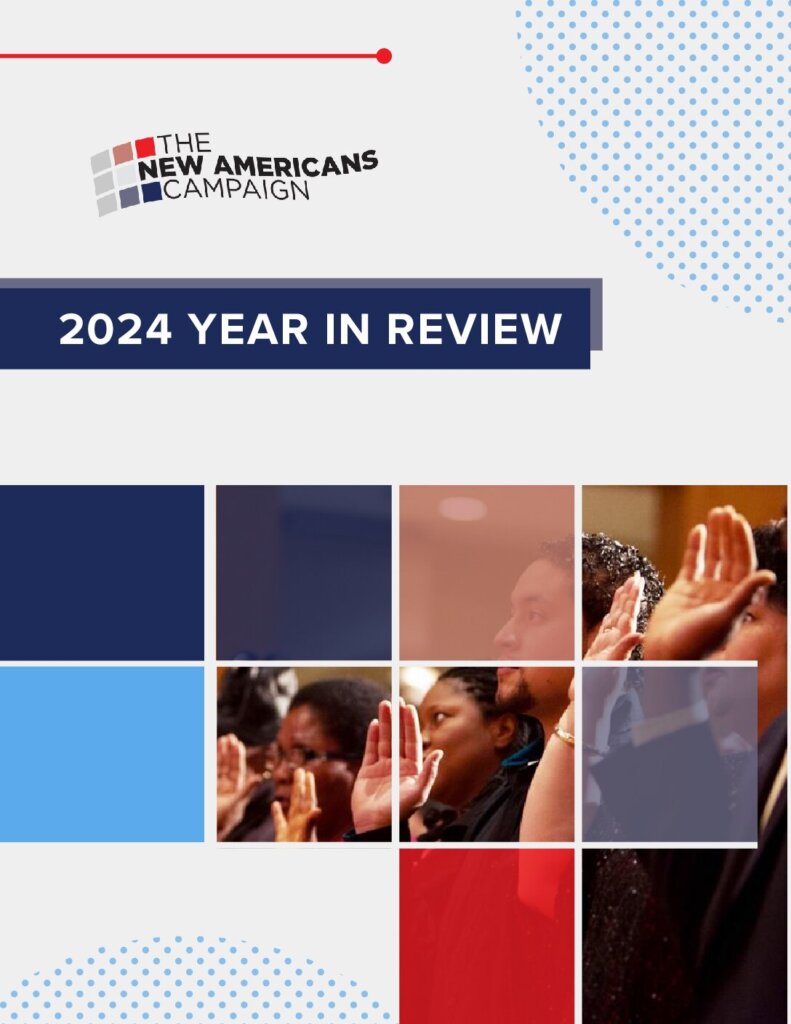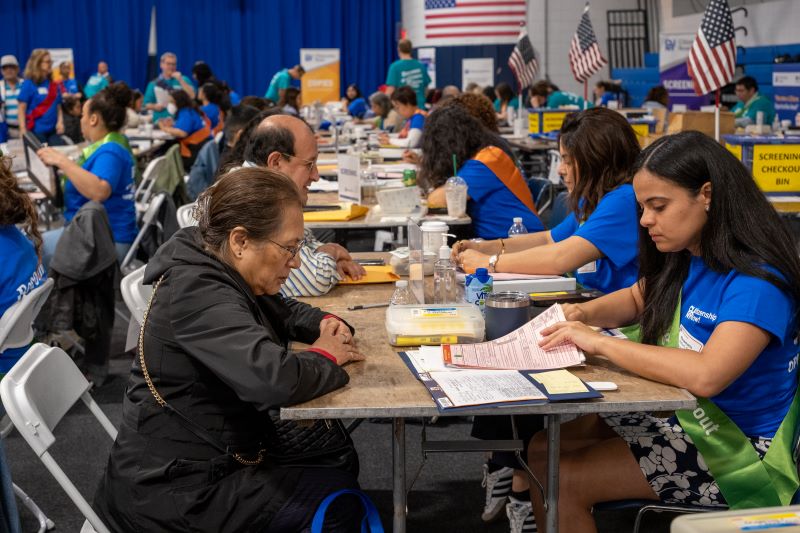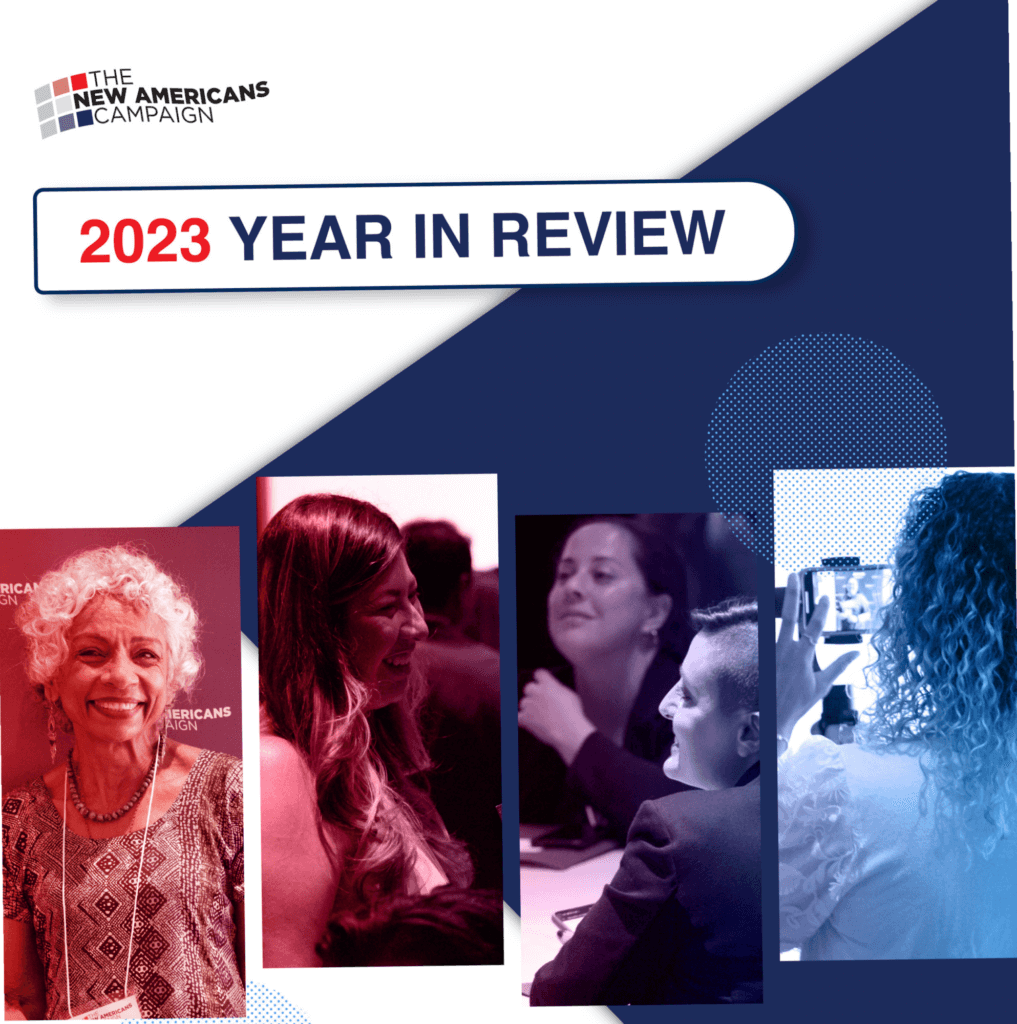Remote Naturalization Services

Explore More
The New Americans Campaign wants to help you during the upcoming months while we are all experiencing widespread closures and uncertainty due to the Coronavirus epidemic. There has been tremendous growth in the number of naturalized citizens over the past 20 years. The Pew Research Center reported currently 23 million naturalized citizens who are eligible to vote in 2020—a number that’s increased by 93% since 2000. But these are difficult times, now made more challenging by the COVID-19 epidemic. As much as possible, we want to help you keep some momentum going while we all adjust to new healthy, social distancing practices. So we are gathering suggestions from our partners. We hope you will contribute your ideas. Most of all take care; stay safe and healthy.
Ways to promote remote assistance to
applicants so that they can complete their applications at home:
1) Learn the nuts and bolts of how to develop your own remote citizenship services with a Comprehensive Guide to Remote Citizenship Services. This detailed guide was originally developed by the New Americans Campaign (NAC) Virtual Review partner, Asian American Advancing Justice—Los Angeles. and expanded with additional content from other NAC Virtual Review partners. You can also download Advancing Justice-LA’s original version of the Guide to Remote Citizenship Services. Download the guide to find tools, resources, planning considerations, sample service models, lessons learned and more. Immigration legal services providers may set up a remote legal review portal directly through the Immigration Advocates Network.
2) The Catholic Legal Immigration Network, Inc. (CLINIC) has written a carefully considered practice advisory, Preparing Your Agency to Provide Immigration Legal Services During the COVID-19 Pandemic. It includes tips on how to prepare your physical office for the months ahead; how to prepare your staff to work remotely; how to maintain good communications with clients and staff; and how to prioritize your cases.
3) Citizenshipworks is a free online service that guides applicants safely through every step of their citizenship application, from application completion to connection with organizations to provide legal help. You can guide your clients through it by phone or online. Applicants who are comfortable with online technology can use Citizenshipworks at home. Your staff can assist applicants over the phone or by video chat. Staff at the Immigration Advocates Network are available to help your organization use Citizenshipworks. You can email them at support@citizenshipworks.org. They will be offering live training for new and current users in March 2020 and beyond.
4) The Immigration Advocates Network and other national NAC partners have created Remote Legal Support: A Guide for Nonprofit and Pro Bono Innovation. This guide is the collective effort of more than 10 nonprofit immigration organizations that spent a year surveying and analyzing a variety of options for reaching underserved communities with remote legal support. The manual contains case studies of successful programs, including logistics, processes, challenges, tools, checklists, sample documents, and best practices.
If your organization is unable to offer sufficient legal review to meet demand, there are several NAC partners who can provide virtual legal review of applications anywhere in the country. The NAC can introduce you to these virtual legal review providers, or you can reach out directly to Advancing Justice-LA’s virtual review portal, GMHC-New York, BPSOS-Houston, and IRC-Atlanta.
The NAC will be providing additional
resources on best practices for remote naturalization services soon.
When it is permissible and safe to hold naturalization workshops again, consider using best practices to reduce the future risks of contagion:
Reduce workshop
size: have multiple small workshops instead of one large one.
Register and pre-screen applicants over
the phone or online in advance of the workshop.
Increase social distancing at the workshop
with 6’ or more between waiting applicants, or between applicants and workers
at tables.
Have hand sanitizer available at the workshop entrance for staff, volunteers, and applicants. Have hand sanitizer at tables. Wipe down tables as necessary.
Plan for uncertainty in attendance. Let
volunteers know that they might not be needed if the turnout is low. Have
future dates ready if you need to reschedule.



